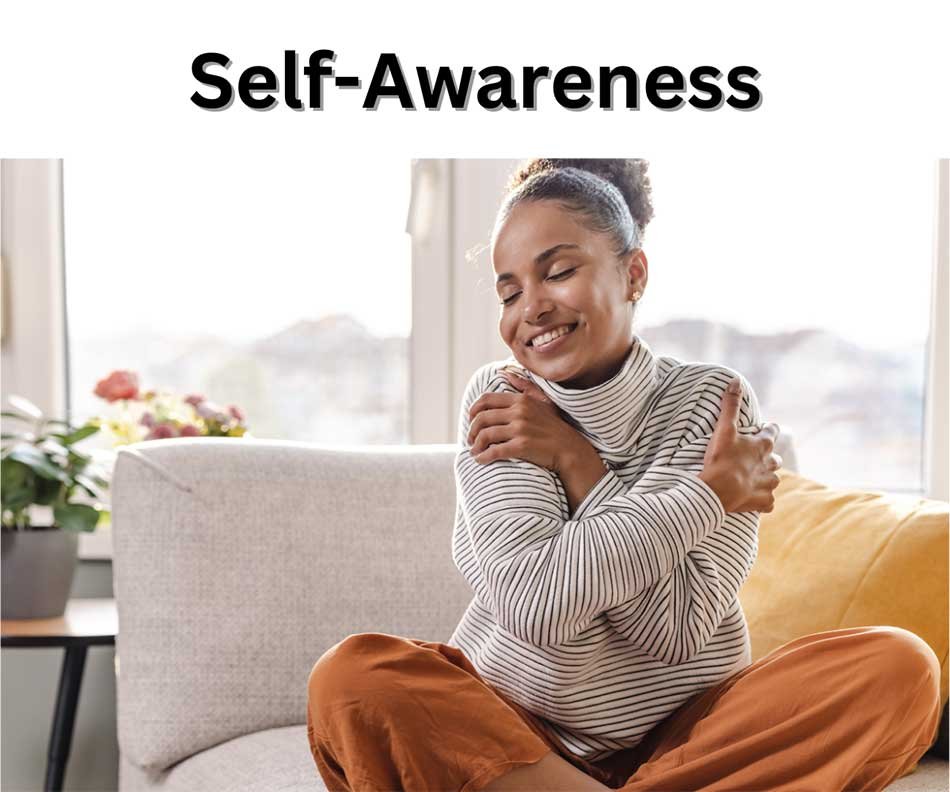
If you know someone who could benefit from this article, please share it with them. It might be the key to helping them unlock a deeper understanding of themselves.

Self-Awareness: The Foundation of Personal Growth
What Is Self-Awareness?
Self-awareness is the ability to recognize and understand your own emotions, thoughts, and behaviors. It’s about being honest with yourself and acknowledging both your strengths and areas for improvement. By cultivating self-awareness, you gain the power to align your actions with your values and create a more fulfilling life.
The Importance of Self-Awareness
Self-awareness is the cornerstone of personal growth and emotional intelligence. It helps you:
- Understand Your Emotions: Recognize what you’re feeling and why.
- Improve Relationships: Communicate more effectively and empathize with others.
- Make Better Decisions: Align choices with your true desires and long-term goals.
- Boost Confidence: Embrace your authentic self and accept imperfections.
Without self-awareness, it’s easy to fall into patterns of self-sabotage or live according to others’ expectations rather than your own.
How to Develop Self-Awareness
Building self-awareness is a continuous process that requires intentional effort. Here are practical steps to get started:
1. Practice Mindfulness
Mindfulness involves paying attention to the present moment without judgment. Regular mindfulness practices, such as meditation or deep breathing, can help you tune into your emotions and thoughts.
- Start Small: Dedicate five minutes a day to mindfulness exercises.
- Notice Patterns: Pay attention to recurring thoughts or triggers.
2. Keep a Journal
Journaling is a powerful tool for self-reflection. Write about your daily experiences, emotions, and reactions to gain insights into your thought processes.
- Prompt Ideas: What made me feel happy today? What challenged me?
- Review Regularly: Look back at entries to identify patterns and growth.
3. Seek Feedback
Ask trusted friends, family, or colleagues for honest feedback about how they perceive you. Their perspectives can provide valuable insights into blind spots.
- Be Open: Accept feedback without becoming defensive.
- Take Action: Use their insights to guide your personal development.
4. Reflect on Your Values
Your values are the principles that guide your decisions and behaviors. Reflect on what matters most to you and whether your actions align with these values.
- Ask Questions: What motivates me? What do I stand for?
- Realign: Adjust behaviors or habits that don’t match your core values.
5. Monitor Your Inner Dialogue
Pay attention to your self-talk. Replace negative, critical thoughts with empowering and constructive affirmations.
- Identify Triggers: Notice situations that lead to negative self-talk.
- Challenge Thoughts: Ask yourself if these thoughts are true or helpful.
6. Embrace Discomfort
Growth often comes from stepping outside your comfort zone. Embrace challenges and reflect on how they make you feel and why.
- Experiment: Try new activities or face fears head-on.
- Learn: Use discomfort as an opportunity for insight and growth.
The Benefits of Self-Awareness
- Enhanced Emotional Regulation: Respond thoughtfully instead of reacting impulsively.
- Stronger Relationships: Understand and respect others’ perspectives.
- Increased Resilience: Navigate challenges with a clearer sense of purpose.
- Greater Authenticity: Live in alignment with your true self.
Picture This
Imagine waking up each day feeling in tune with your emotions and confident in your decisions. You approach challenges with clarity and respond to others with empathy and understanding. Your relationships thrive because you communicate authentically, and your life aligns with your deepest values. Self-awareness isn’t just a skill; it’s the foundation for living a balanced and meaningful life. How will you start cultivating self-awareness today?






